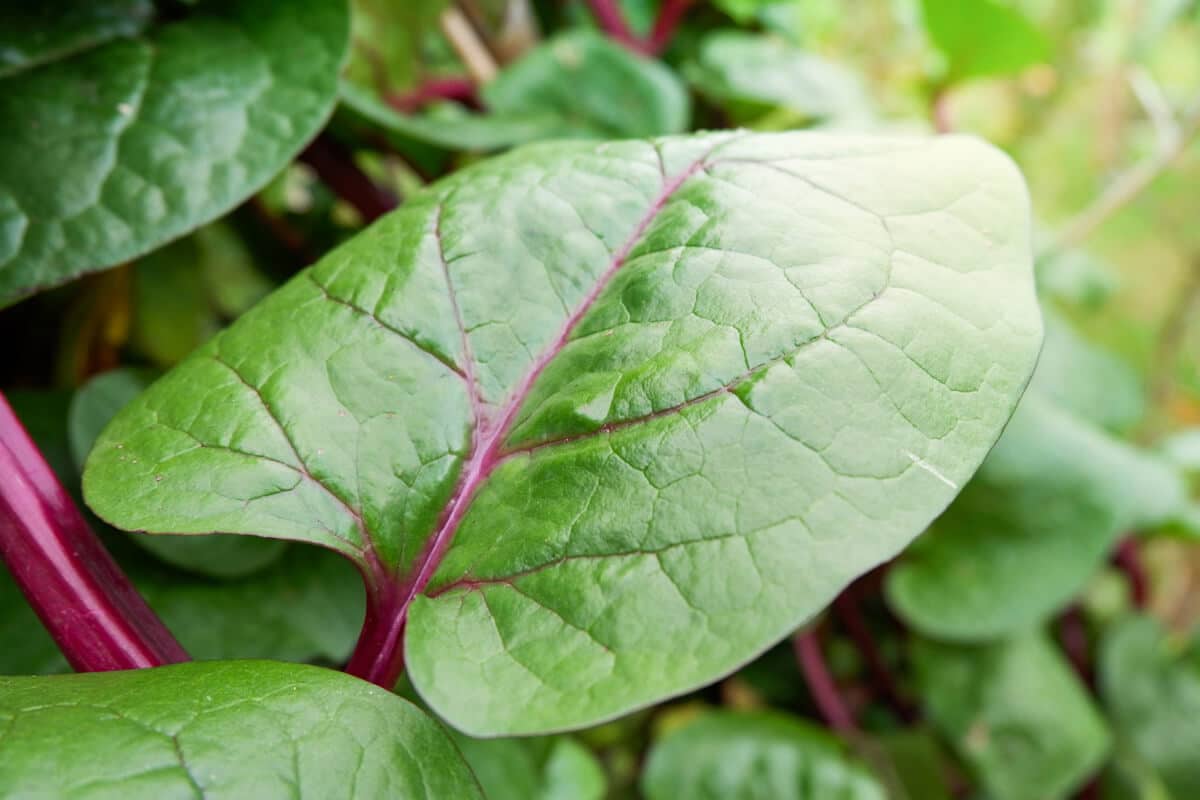
Malabar Nightshade, also known as Basella alba, is a unique and versatile plant that often flies under the radar. This leafy green, native to tropical Asia and Africa, thrives in warm climates and offers a plethora of benefits. But what makes it so special? Malabar Nightshade isn't just another green; it's packed with nutrients, easy to grow, and can be used in various dishes. Whether you're a gardening enthusiast or a culinary explorer, this plant has something to offer. Let's dive into 15 fascinating facts about Malabar Nightshade that will make you appreciate this underrated gem even more.
Key Takeaways:
- Malabar Nightshade is a tropical vine with edible leaves and stems, packed with vitamins, iron, and antioxidants. It's a low-calorie food, great for soups, stews, and even salads, and thrives in warm, humid climates.
- Besides being a tasty addition to meals, Malabar Nightshade has medicinal properties, such as anti-inflammatory and digestive aid. It also enriches the soil, making it a beneficial plant for both your health and the environment.
What is Malabar Nightshade?
Malabar Nightshade, also known as Basella alba or Ceylon spinach, is a tropical vine known for its edible leaves and stems. This plant is popular in many Asian cuisines and is often used as a spinach substitute. Let's dive into some fascinating facts about this unique plant.
Nutritional Benefits
Malabar Nightshade is not just tasty; it's packed with nutrients that can benefit your health in various ways.
- Rich in Vitamins: The leaves are an excellent source of vitamins A and C, which are essential for maintaining healthy skin and a robust immune system.
- High in Iron: This plant is a great iron source, crucial for producing red blood cells and preventing anemia.
- Contains Antioxidants: Malabar Nightshade is loaded with antioxidants that help combat free radicals, reducing the risk of chronic diseases.
- Low in Calories: It's a low-calorie food, making it an excellent choice for those looking to maintain or lose weight.
Culinary Uses
Malabar Nightshade is versatile in the kitchen, offering a range of culinary possibilities.
- Used in Soups and Stews: The leaves and stems can be added to soups and stews, providing a unique flavor and texture.
- Stir-Fried Delicacy: Often stir-fried with garlic and other spices, it makes a delicious side dish.
- Salad Ingredient: The young leaves can be eaten raw in salads, adding a fresh, slightly peppery taste.
- Thickening Agent: The mucilaginous quality of the leaves makes them a natural thickening agent for sauces and soups.
Growing Conditions
Understanding the growing conditions can help you cultivate Malabar Nightshade successfully.
- Thrives in Warm Climates: This plant loves warm, humid conditions and can be grown year-round in tropical regions.
- Requires Support: As a climbing vine, it needs a trellis or other support to grow properly.
- Prefers Moist Soil: It grows best in well-drained, moist soil rich in organic matter.
Medicinal Properties
Beyond its nutritional value, Malabar Nightshade has several medicinal uses.
- Anti-inflammatory: The plant has anti-inflammatory properties that can help reduce swelling and pain.
- Digestive Aid: Its mucilaginous nature can soothe the digestive tract, making it useful for treating constipation and other digestive issues.
- Skin Health: The leaves can be used in poultices to treat skin conditions like boils and ulcers.
Environmental Impact
Growing Malabar Nightshade can also have positive environmental effects.
- Soil Enrichment: The plant helps enrich the soil with organic matter, improving its fertility and structure.
Malabar Nightshade is a remarkable plant with numerous benefits, from its nutritional value to its culinary versatility and medicinal properties. Whether you're a gardener, a cook, or someone interested in natural remedies, this plant has something to offer.
Final Thoughts on Malabar Nightshade
Malabar Nightshade, also known as Basella alba, is a fascinating plant with a rich history and numerous benefits. This nutrient-packed green is not only a staple in many Asian cuisines but also a powerhouse of vitamins and minerals. Its antioxidant properties help combat free radicals, promoting overall health. Plus, it's a versatile ingredient, perfect for salads, soups, and stir-fries.
Growing Malabar Nightshade is relatively easy, making it an excellent addition to home gardens. Its climbing nature and vibrant leaves add aesthetic value while providing a continuous supply of fresh greens. Whether you're a gardening enthusiast or a culinary explorer, incorporating Malabar Nightshade into your routine can offer both nutritional and visual delights.
So, next time you think about adding something new to your garden or kitchen, consider Malabar Nightshade. It's a small change with big benefits.
Frequently Asked Questions
Was this page helpful?
Our commitment to delivering trustworthy and engaging content is at the heart of what we do. Each fact on our site is contributed by real users like you, bringing a wealth of diverse insights and information. To ensure the highest standards of accuracy and reliability, our dedicated editors meticulously review each submission. This process guarantees that the facts we share are not only fascinating but also credible. Trust in our commitment to quality and authenticity as you explore and learn with us.


